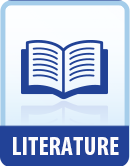|
This section contains 977 words (approx. 4 pages at 300 words per page) |

|
There can be little doubt that Coleridge's failure to get out of the dilemma of Intellect-or-Feeling has been passed on to us as a fatal legacy. If the first object of poetry is an effect, and if that effect is pleasure, does it not necessarily follow that truth and knowledge may be better set forth in some other order altogether? It is true that Coleridge made extravagant claims for a poetic order of truth, and it is upon these claims that Mr. I. A. Richards has based his fine book, Coleridge on the Imagination: Mr. Richards's own testimony is that the claims were not coherent. The coherent part of Coleridge's theory is the fatal dilemma that I have described. Truth is only the secondary consideration of the poet, and from the point of view of positivism the knowledge, or truth, that poetry gives us is immature and inadequate...
|
This section contains 977 words (approx. 4 pages at 300 words per page) |

|


